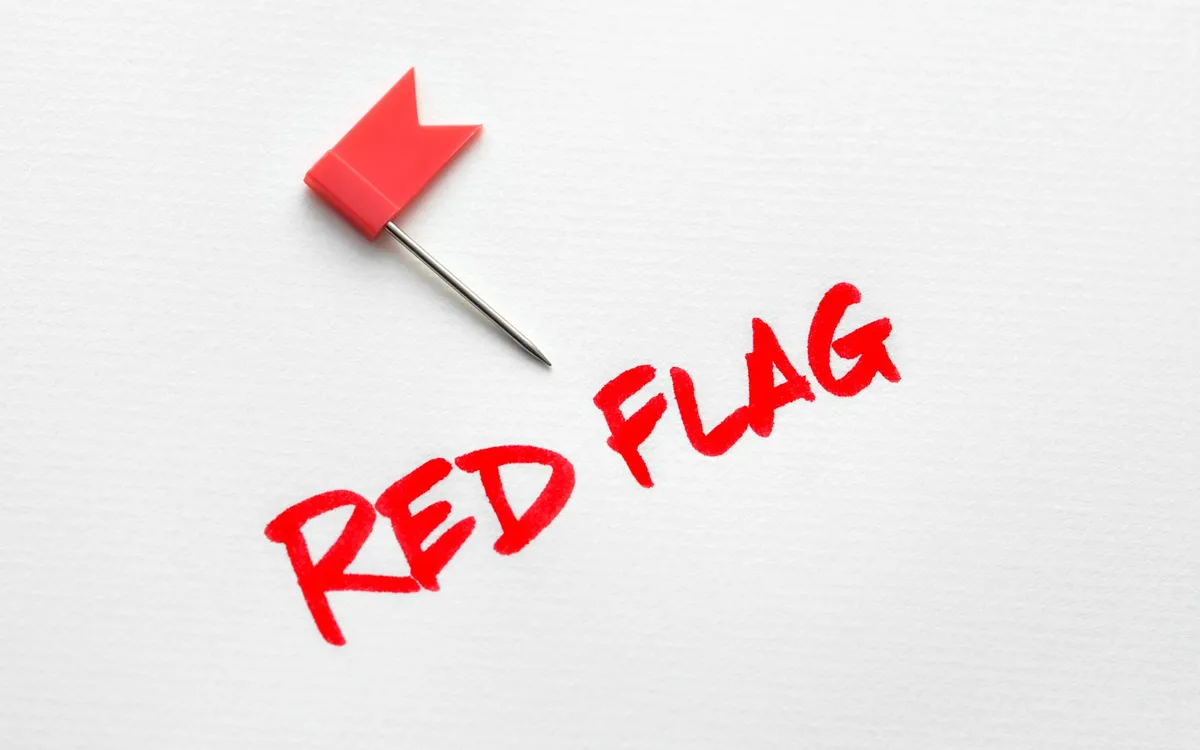
Romantic relationships are meant to be fulfilling, empowering, and deeply personal. But while it’s easy to get swept up in the excitement of a new relationship, it’s also crucial to be aware of potential red flags — warning signs that your relationship might not be as healthy as it seems.
When caught early, red flags can give you the insight and power to make informed decisions — whether to proceed with caution, seek clarity, or even walk away. This article explores in-depth the most common red flags to look out for in the early stages of a relationship, why they matter, and how to handle them.
Related Reading: Check out our guide on Healthy Boundaries in Romantic Relationships to learn how to set limits that protect your emotional health.
What Are Red Flags in Relationships?
Red flags are behaviors or traits that signal potential emotional, psychological, or even physical harm. They can be subtle or blatant, but the key is that they typically don’t improve over time — they escalate. According to psychologists, ignoring red flags in the early stages of a relationship can lead to long-term emotional distress or even abuse.
Why Are Red Flags Dangerous?
-
They grow stronger with time – What starts as jealousy may evolve into controlling behavior.
-
They create emotional dependency – Especially when combined with tactics like love bombing.
-
They reduce your self-worth – Gaslighting and emotional manipulation can make you question your own reality.
-
They isolate you – From friends, family, and support systems.
Ignoring red flags because “they’ll change” or “they’re just stressed” can cause more pain later. Trust what you feel — your intuition is there for a reason.
Read Also:
15 Early Red Flags to Never Ignore
Let’s explore common red flags you should look out for early in a relationship:
1. Controlling Behavior
Does your partner tell you what to wear? Who you can talk to? Where you should go? These are not acts of love — they are signs of control.
Further Reading: Psychology Today on Controlling Partners
2. Disrespect for Boundaries
If your partner dismisses your “no,” pressures you into physical intimacy, or jokes about your insecurities despite you asking them not to — that’s a problem. Respect is non-negotiable.
Learn how to set firm boundaries in this blog post.
3. Love Bombing
At first, it seems romantic — constant praise, gifts, and attention. But if it feels overwhelming and too soon, it might be manipulation disguised as affection. Love bombing often aims to make you emotionally dependent.
4. Constant Jealousy
A jealous partner may accuse you of cheating or demand constant updates on your whereabouts. This behavior reflects insecurity, not love.
5. Gaslighting
Phrases like “You’re too sensitive”, “That never happened”, or “You’re imagining things” are meant to distort your reality. It’s emotional abuse.
6. Avoiding Accountability
Does your partner blame everyone else for their problems? Do they never say “I’m sorry”? This shows immaturity and a lack of emotional intelligence.
7. Lying or Half-Truths
Even small lies, when frequent, erode trust. A partner who hides things from you early on is likely not transparent — and may have more to hide.
8. Inconsistent Communication
If your partner is hot one day and cold the next, it’s a sign of emotional unavailability or manipulation.
Tip: Learn how to identify an emotionally unavailable partner in this article.
9. Speaking Poorly About Exes
If your partner refers to all their exes as “crazy,” beware. This might indicate that they can’t take accountability for past relationship issues.
10. Isolating You from Friends and Family
A healthy partner will encourage your relationships with others. If they discourage time with loved ones, they may be trying to make you dependent on them.
11. Excessive Flattery That Feels Hollow
While compliments are healthy, constant praise that feels exaggerated might be a tactic to lower your guard — especially when followed by manipulation.
12. Contempt or Mockery
Name-calling, sarcasm, or dismissing your opinions are all early signs of disrespect. These behaviors kill emotional intimacy.
13. Unwillingness to Compromise
All relationships require give-and-take. If your partner insists on their way every time, this could evolve into a controlling dynamic.
14. Keeping the Relationship a Secret
If they’re reluctant to introduce you to their friends, post about you, or define the relationship — especially after months — ask yourself why.
15. Push for Fast Commitment
If they’re saying “I love you” in the first week or suggesting moving in after just a few dates, be wary. Real love takes time to build.
How to Respond to Red Flags
1. Trust Your Intuition
If something feels off, it probably is. Don’t ignore your gut feeling — it’s often your first line of defense.
2. Open Up a Conversation
Use non-confrontational language:
“When you say things like that, I feel uncomfortable. Can we talk about it?”
If they react defensively or dismiss your feelings, that’s another red flag.
3. Set and Enforce Boundaries
Let them know what’s acceptable and what’s not. Boundaries protect your mental and emotional health.
4. Seek Support
Talk to friends, a therapist, or a relationship coach. Sometimes, outside perspectives help us see what we’re too close to notice.
Explore BetterHelp’s online therapy services if you’re struggling to navigate a toxic relationship.
5. Be Willing to Walk Away
Sometimes the best move for your well-being is to leave. Ending things early, even when difficult, is better than enduring long-term emotional harm.
Don’t Mistake Red Flags for “Fixable” Traits
Many people believe that they can change someone with love, patience, or time. While people can grow, your job in a relationship isn’t to fix anyone — especially not at the cost of your peace and safety.
Healthy love is mutual. It supports, uplifts, and respects. If your relationship makes you anxious more than it brings you peace, it’s time to re-evaluate.
Final Thoughts
Red flags aren’t just about identifying bad behavior — they’re about protecting your emotional and psychological health. A relationship should feel like a safe space, not a battlefield. Pay attention to patterns, not isolated incidents, and don’t be afraid to ask hard questions.
You deserve a partner who listens, respects, and values you. If you feel like you’re constantly explaining your worth — that’s your sign to move on.




